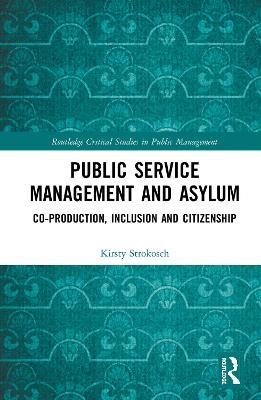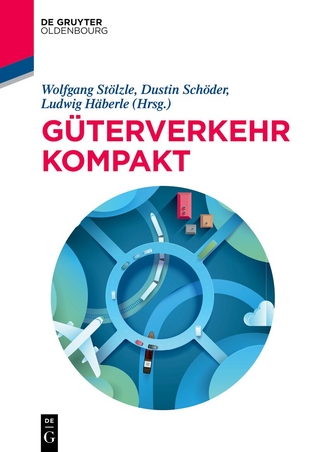
Public Service Management and Asylum
Routledge (Verlag)
978-1-138-33314-7 (ISBN)
Public Service Management and Asylum: Co-production, Inclusion and Citizenship offers a comprehensive exploration of co-production from the public administration and service management perspectives. In doing so, it discusses the importance of both streams of literature in providing a holistic understanding of the concept, and based on this integration, it offers a model which differentiates co-production on five levels. The first three refer to the role of the public service user in the design and delivery of services (co-construction, participative co-production and co-design) and the other two focus on inter-organisational relationships (co-management and co-governance). This model is applied to the case of asylum seekers in receipt of social welfare benefits in Scotland to explore the implications for social inclusion and citizenship. It argues that as public service users, asylum seekers will always play an active role in the process of service production and while co-production does not provide asylum seekers with legal citizenship status, if offers an opportunity for asylum seekers to act like citizens and supports their inclusion into society. It will be of interest to researchers, academics, policymakers, public services managers, and students in the fields of public management, public administration, organizational studies.
Kirsty Strokosch is a Post-Doctorate Research Fellow in the Centre for Service Excellence (CenSE) at the University of Edinburgh.
Contents
List of Figures
List of Tables
Acknowledgements
Chapter 1 Introduction
Abstract
The co-production of public services
Evolution of the concept of co-production
Co-production between organisations
Moving forward: developing an integrated approach to co-production
Book structure
References
PART ONE DIFFERENTIATING CO-PRODUCTION
Chapter 2 The co-production of public services: the public administration perspective
Abstract
Introduction
The rationale for the co-production of public services
The evolution of co-production from a public administration perspective
The influence of the New Public Management on co-production
Who is the co-producer: clients, consumers and citizens
Summary: co-production from a public service management perspective
References
Chapter 3 Co-production and the service management theory
Abstract
Introduction
Understanding services: inseparability, intangibility and co-production
Building the concept of co-production from the service management perspective
Product-dominant logic vs service-dominant logic
Managing the service relationship
Summary: co-production from the service management perspective
References
Chapter 4 Co-production: an integrated perspective
Abstract
Introduction
An integrated perspective on co-production
Limitations of the integrated model
Summary: an integrated model of individual modes of co-production
References
Chapter 5 Co-Production through inter-organisational relationships
Abstract
Introduction
Moving from intra-organisational to inter-organisational relationships
The third sector: mediator and co-producer
Differentiating inter-organisational relationships: co-management and co-governance
Co-production by service users and organisations
Summary: understanding inter-organisational relationships
References
PART TWO CASE STUDY RESEARCH: ASYLUM SEEKERS AND SOCIAL WELFARE SERVICES IN GLASGOW
Chapter 6 Asylum seekers in Scotland: marginalised non-citizens
Abstract
Introduction
The UK context: the impact of exclusionary policies
The Scottish context: dispersal, public services and social inclusion
Citizenship, rights and asylum
Role of the third sector in asylum seeker context
Empirical research design
Summary: asylum, support and rights
References
Chapter 7 Understanding co-production: an empirical case study of asylum seekers living in Glasgow
Abstract
Introduction
Asylum in Scotland: integration, public services and non-citizens
Co-production and asylum seeker public service users
Summary: asylum seekers and social welfare services in Scotland
References
Chapter 8 Understanding organisational modes of co-production through the empirical case of asylum seekers in Glasgow
Abstract
Introduction
The importance of the third sector
Inter-organisational relationships: co-management and co-governance
Summary: inter-organisational relationships
References
PART THREE CO-PRODUCTION IN A COMPLEX SERVICE SYSTEM: SOCIAL INCLUSION AND CITIZENSHIP
Chapter 9 Co-production in a complex public service system: the implications for social inclusion and citizenship
Abstract
Introduction
Asylum seekers’ social welfare services and co-production
Co-production in a complex public service system
Fostering social inclusion and integration through co-production
Are asylum seekers ‘acting like citizens’?
Summary: co-production, social inclusion and citizenship
References
Chapter 10 Conclusions
Abstract
Introduction
An integrated perspective on co-production
Co-production, citizenship and social inclusion
Implications for public service management
References
Index
| Erscheinungsdatum | 21.06.2019 |
|---|---|
| Reihe/Serie | Routledge Critical Studies in Public Management |
| Zusatzinfo | 5 Tables, black and white |
| Verlagsort | London |
| Sprache | englisch |
| Maße | 152 x 229 mm |
| Gewicht | 453 g |
| Themenwelt | Sozialwissenschaften ► Politik / Verwaltung |
| Wirtschaft ► Betriebswirtschaft / Management ► Logistik / Produktion | |
| Wirtschaft ► Betriebswirtschaft / Management ► Planung / Organisation | |
| ISBN-10 | 1-138-33314-X / 113833314X |
| ISBN-13 | 978-1-138-33314-7 / 9781138333147 |
| Zustand | Neuware |
| Haben Sie eine Frage zum Produkt? |
aus dem Bereich


